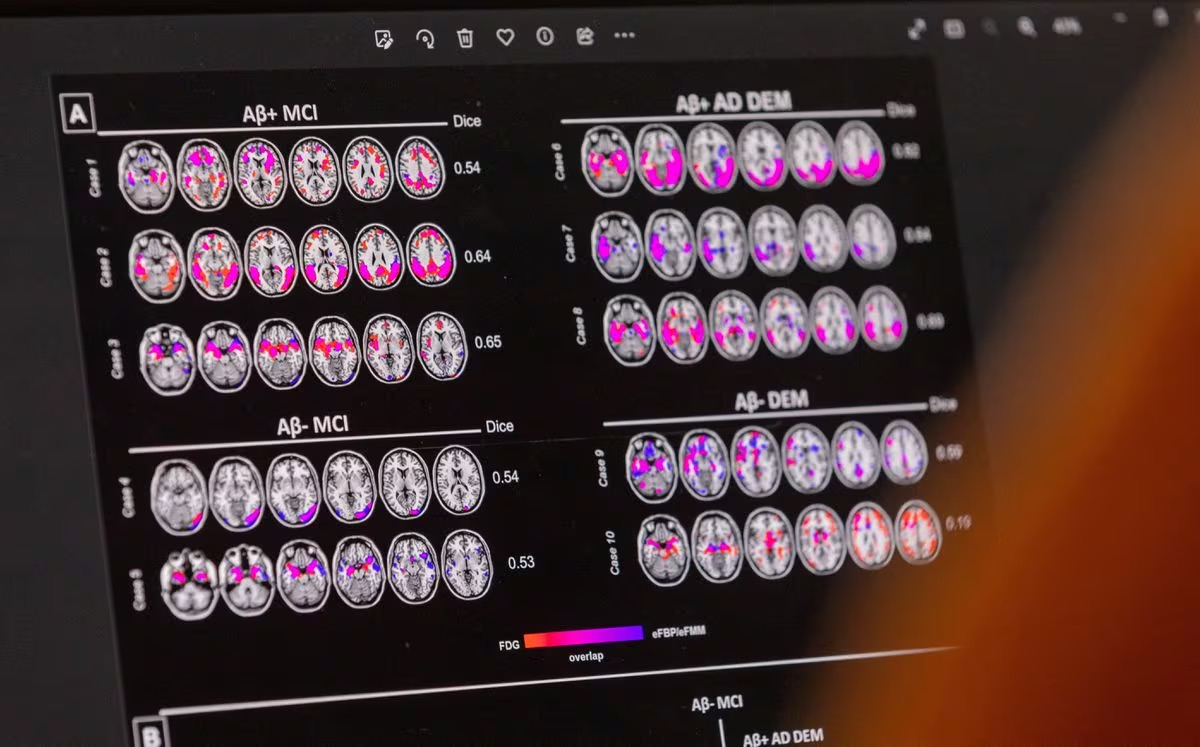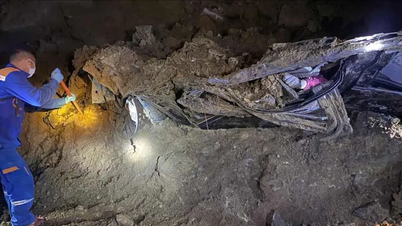The study, published in the journal Nature Aging, is part of ongoing research by several groups to identify patients at risk of dementia using a simple blood test, an advance that many scientists believe will speed up the development of new treatments.
Currently, brain scans can detect abnormal levels of a protein called beta amyloid years before Alzheimer's dementia develops, but the tests are expensive and often not covered by insurance.

A scientist looks at patterns of hypometabolism and hypoperfusion in a patient with Alzheimer's disease at the Memory Center of the Department of Reading and Geriatrics of the University Hospital (HUG), in Geneva, Switzerland, June 6, 2023. Photo: REUTERS
“Based on this study, it seems likely that blood tests will be developed to predict the risk of dementia in the next 10 years, although people at higher risk often have difficulty knowing how to respond,” said Dr. Suzanne Schindler, an Alzheimer’s researcher at Washington University in St. Louis, who was not involved in the study.
Such tests are crucial for aging populations like China's, said study author Jian-Feng Feng of Fudan University in Shanghai, noting that he is in talks about the potential for commercial development of a blood test based on his research.
In this study, researchers at the University of Warwick and Fudan University studied 52,645 blood samples from the UK Biobank research repository, collected between 2006 and 2010 from people who showed no signs of dementia at the time.
Of these, 1,417 eventually developed Alzheimer's disease, vascular dementia, or dementia of any cause. The researchers looked at protein markers common in these people and found 1,463 proteins associated with dementia and ranked them by their ability to predict dementia.
They found that people with higher blood levels of the proteins GFAP, NEFL, GDF15, and LTBP2 were more likely to develop Alzheimer's. Those with elevated GFAP levels had a 2.32-fold increased risk of dementia, confirming findings from smaller studies that have shown the protein's contribution.
The authors note that their research has not been independently confirmed.
Schindler said that one protein that works well in predicting dementia, neurofilament light, is already used in the clinic to diagnose and monitor some conditions like multiple sclerosis.
“This study did not include clinically available blood tests for Alzheimer's disease, which may be even better at predicting the development of dementia due to Alzheimer's,” she said.
Mai Anh (according to Reuters)
Source



![[Photo] Binh Trieu 1 Bridge has been completed, raised by 1.1m, and will open to traffic at the end of November.](https://vphoto.vietnam.vn/thumb/1200x675/vietnam/resource/IMAGE/2025/10/2/a6549e2a3b5848a1ba76a1ded6141fae)


































































































Comment (0)